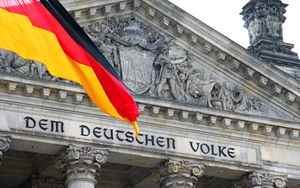(Finance) – The phase of net purchases of ECB securities should end in June “at which point an interest rate hike could occur in July. And other rate hikes may follow“. This was stated by the President of the Bundesbank, Joachim Nagel at the press conference of the German G7 presidency, at the end of the meeting of finance ministers and central bankers in Bonn. Nagel, like all central bank governors of the euro area, he sits on the Governing Council of the ECB.
Also on the sidelines of the G7 Finance meeting in Bonn, the Minister of Finance of Germany, Christian Lindner he also spoke of the Stability Pact. The question of whether to propose an extension of the suspension clause of the Stability Pact “is up to the European Commission, we are in favor of a data-based decision and in our opinion the data does not provide any evidence of the need to continue to suspend these rules “, he said.
On Monday, the Commission is expected to propose the extension to 2023 of the suspension of the Pact. “Germany will not make use of it – clarified Lindner -. Germany next year will abide by the balanced budget rule envisaged by our constitution. And let’s plan the exit from the expansionary budget policy “.
In Germany in the government “we want to bring the budget back into balance in 2023, we want to put an end to the expansion phase, we must try to promote private demand, investment and growth through more productivity. But enough with stimuli and aids “.
As mentioned, the Stability Pact could also be suspended for the whole of 2023. The hypothesis is making its way to Brussels and according to what various newspapers report, there would in fact be an agreement on the decision to extend the safeguard clause by another twelve months activated during the pandemic. A passage to the finance ministers is still needed, but the measure will most likely be presented early next week, together with the spring package for the European semester.
In the background, the new crisis triggered by the war in Ukraine. The European Union is in fact called to deal with the consequences of the conflict. “There is a very high level of inflation and one of the fastest recorded falls in our seasonal forecasts,” said the Commissioner for Economic Affairs. Paolo Gentiloni, presenting the Commission’s spring forecast. And in the scenario of a sudden cut in gas supply from Russia, GDP growth rates would be set to fall by 2.5 points and 1 percentage point, below the baseline value forecast for this year and 2017 respectively. next, indicated for the euro area at 2.7% in 2022 and 2.3% in 2023.
